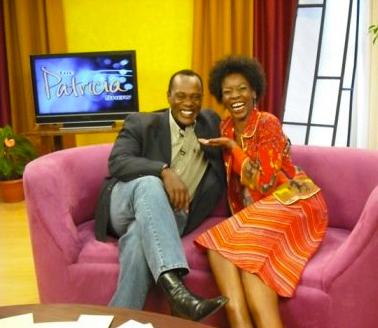Oprah Winfrey’s Influence Around the World
The Patricia Show
Wednesday marks the final episode of The Oprah Winfrey Show.
After 25 years of her daytime television show Winfrey will now concentrate on making a success of her own cable channel. The influence of Oprah Winfrey’s chat show here in the United States is well documented. But it long ago spread beyond our borders, being broadcast in around 150 countries.
“I don’t think there is a talk show host in the world now who hasn’t studied Oprah and thought, I’m going to be the next Oprah,” said Ellis Cashmore, author of the book ‘Celebrity/Culture.’ “Every talk show host has some semblance of Oprah. Her fingerprints are everywhere.”
That includes the Kenyan capital, Nairobi, where The Patricia Show is produced. It’s broadcast on TV across the African continent. Host Patricia Amira readily agreed that she and her team picked things up from watching Oprah’s production: the set and the lighting, for instance.
But The Patricia Show doesn’t copy Oprah. It couldn’t even if it wanted to. For one thing, Amira’s guests tend to be more reticent than American ones.
“People aren’t very comfortable speaking about themselves,” Amira said. “That’s something that is growing but people don’t talk, people don’t engage. How else is the African continent supposed to grow if we’re not sharing our stories?”
That reticence to reveal personal stories – often uncomfortable stories – was felt in other places too, in other parts of the world where The Oprah Winfrey show was broadcast.
Jane Shattuc, author of “The Talking Cure: Television Talk Shows and Women,” remembers the experience studying for her doctorate in West Germany back in the 1980s.
“My housemates were incredibly open sexually within the house, but to be open to a stranger or to have that kind of disclosive quality was quite radical and they would just laugh about Oprah,” said Shattuc. “Certainly they thought the idea of going to a therapist and being disclosive was a very American thing.”
The Oprah Philosophy
Full disclosure – principally to yourself – is at the heart of Oprah’s recipe for personal growth.
“Get to grips with yourself, get to know who you really are and then society will work its own problems out,” said Ellis Cashmore. “Whereas her critics say that’s actually not true; there are a lot of people who have located the source of their problems and it doesn’t lie within them, it lies within the society that surrounds them.”
Still, when she returned from Germany to teach in the US, Jane Shattuc saw first-hand how seductive the Oprah philosophy was.
“I started getting students in the 1990s, graduate students coming from Greece, Israel and other places,” Shattuc said. “They wanted to produce Oprah-style talk shows for their various countries. You know: ‘we won’t be as open as you people’ was the rejoinder, but ‘we still think this is important’. And it would be women.”
Oprah Winfrey arguably helped normalize and spread the idea that everyday people – women in particular – are individually valuable. Thoughts like that take root everywhere.
But Patricia Amira in Nairobi said not everything translates.
Spirituality
Over the years The Oprah Winfrey Show has been described not just as a kind of therapy for viewers, but as a kind of church even. Winfrey has long preached a message of inclusive, personally transformative spirituality, even as she’s avoided talking about specific religions.
But that tone wouldn’t work on The Patricia Show, said its host.
“We kind of expect that from America and we accept it from America,” said Patricia Amira.
“But it’s not necessarily the way we live our lives. For me it’d be very much, go out there, do it, look at this story, it’s very inspirational, there’s something to be learnt, if you want to help, yes you can, but it’s about to that level. We haven’t got to a place of being comfortable in that zone after twenty-five years, no.
The Oprah Winfrey Show was comfortable in that zone.
And so was its global audience, which for 25 years witnessed an African American, and a woman, working and succeeding on her own terms.
